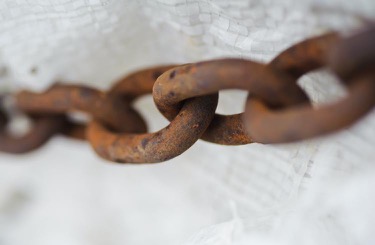DaylightEnslavementTime

"I'll probably recover."
Once there was a time before time, before we managed to finely measure it. Then, all time was approximate, never exact, or never more exact than a cast shadow. When the sun stood directly overhead, one could say, "It's noon," without receiving a bunch of guff in return. A mile down the road, noon arrived at a different time than it did here; a constant difference, but nonetheless a difference. When mankind still moved at the speed of a walking horse, these differences didn't matter to anyone. The telegraph and steam-powered transportation changed everything. Once train passengers needed to make connections with steam ships, it became a lot more difficult to determine the time. The mighty Union Pacific operated on Omaha time, two hours ahead of Oakland time. A steamship might maintain its schedule according to its headquarter's time, meaning that Omaha time and Cherbourg time collided there. Modernists finally managed to negotiate an international treaty which calibrated standard times relative to Greenwich Mean Time, an act that infuriated farmers and fundamentalists worldwide. ©2018 by David A. Schmaltz - all rights reserved
During WWI, various national governments took exception to their earlier agreements, instituting a more thoroughly modern Daylight Savings Time, reportedly to provide more daylight to aid in the manufacture of war materiel. This was achieved by simply slipping the clock forward, which produced a fine illusion of more daylight at the end of the day, but at the cost of shortchanging the early riser. Farmers and fundamentalists fumed again. I cannot imagine a modern world without the regulating presence of some sort of universal time. Some belligerent localities refused to adopt Daylight Savings Time, which only mildly clogged up the collective good. The price of liberty, after all, includes tolerating some level of local bull-headedness. Following the Revolution, the new French government installed a decimal-based time scheme which I cannot coherently explain. Neither could any of their visitors or trading partners.
Even a trumped-up time scheme proves serviceable if most agree to employ it. My trusty old watch was in the shop getting cleaned for three months this year. During that time, my left arm seemed to grow alienated from me, as I came to not even think of referencing it when wondering after the time. I'd draw my iPhone instead, fiddle through the security protocol (my index finger ID doesn't always work), and access the agreed upon current time that way. My point being that I was not even interested in the correct time. I never look up into the heavens to determine the time because the heavens were never party to the international time treaty. Lunchtime remains an Earth-bound concept. The wide-acceptance of Daylight Savings Time seems to have reliably reprogrammed this humble correspondence. I hear the farmers and fundamentalists railing about the practice. They've always been sensitive when new concepts collide with entrenched preconceptions, but I love Daylight Savings Time, even though I understand that it's a sort of coerced enslavement. The very regulating force ignores what some insist are God's Laws, in favor of an oppressive tin whistle human substitute. When the US switched over to universal time, crowds gathered on courthouse lawns to witness the end of the world. Most left disappointed, the end being too subtle for most to perceive. It certainly arrived that day, anyway.
I find myself entrained by the time whenever the powers that be decide to fall back into regular universal time. I've grown accustomed to the sun setting about supper time and rising again about the time The Muse musters out of bed in the morning. Suddenly, I'm prepping supper in total darkness, a real encumbrance to my grilling skills, and waking The Muse in full daylight. My meal schedule goes out of whack and my sleeping routines fuss like an infant needing a diaper change. I must be in some sort of withdrawal. I figure everyone else experiences something similar. I understand that Daylight Savings Time was a sort of enslavement, a rhythm I had no choice to ignore, but like many forms of indenture, one I eventually ended up championing. I became my own overseer, enforcing rules I took no part in crafting. Such, I suspect, is human nature, sometimes.
No law qualifies as a natural law, save those governing physical properties, and even those seem tenaciously context-dependent. None of us had any input into setting the boiling point of water or the freezing point of molten aluminum. We managed to accept those as givens. We have not (yet) drafted any treaties agreeing to seasonally rescind any physical laws, and we're unlikely to. The underlying regulating rhythm, though, never was a natural law, but one concocted out of general agreement. Why do the French insist upon sitting down to supper after nine o'clock? Why do Germans start hankering for Himmel und Erde by five? Their rhythms exist within the overarching international uniform one. I'd never have noticed any difference had not Daylight Savings Time not come into being and then out of being again. I suspect that I would have carved out my own personal daily rhythm to pretty much match the one Daylight Savings Time prescribes. I move to a slightly offset rhythm, anyway, and I'm sometimes painfully aware that my "natural" rhythm probably seems syncopated to all those attuned to the common one. For the first few days following the end of Daylight Savings Time, I feel about as free as anyone recently liberated from a routine they've grown accustomed to. Then, their sudden liberation hardly feels like freedom, but more like an even more insidious form of enslavement. I'll probably recover.


